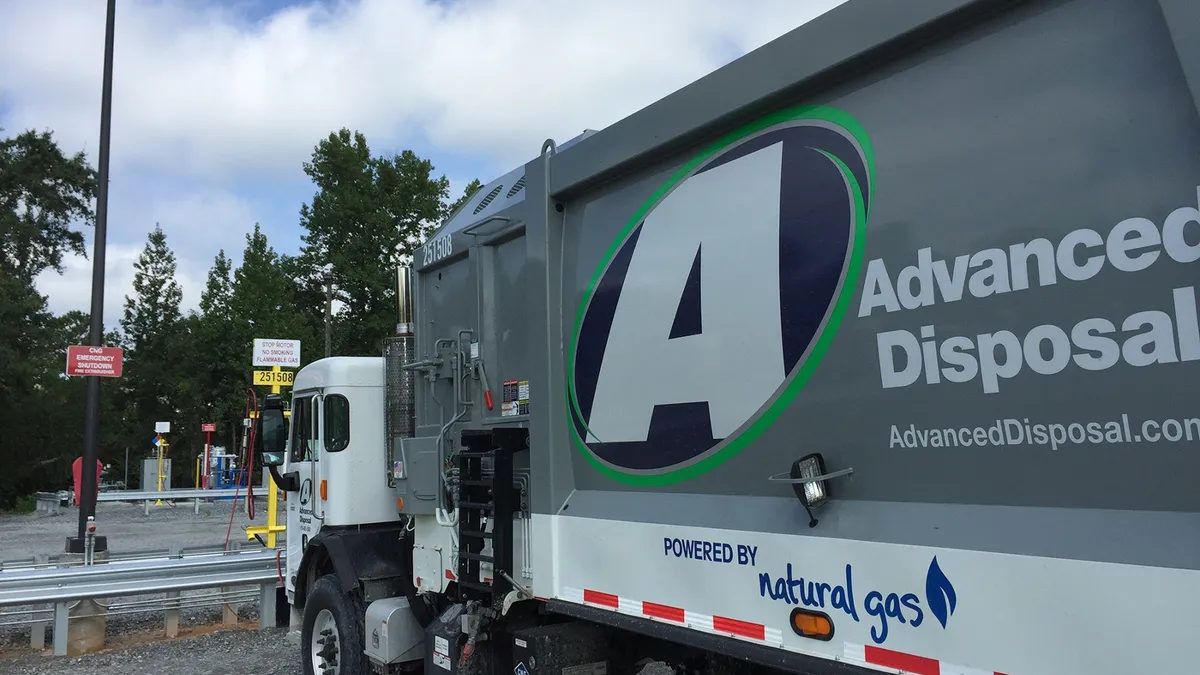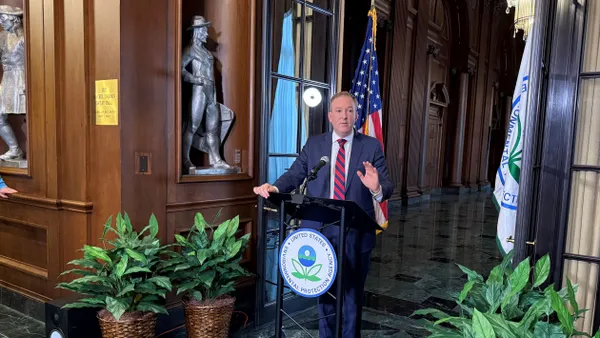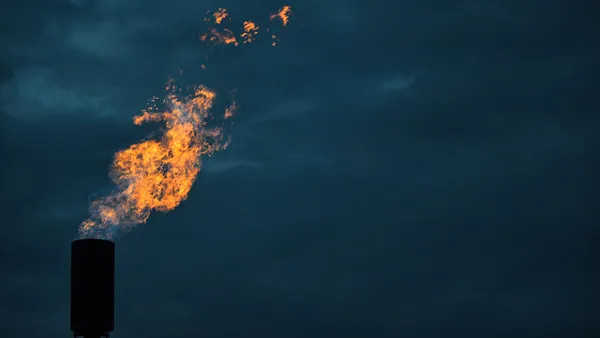UPDATE: May 17, 2019: The city of Mayville has withdrawn its appeal to a dismissed siting board lawsuit after reaching a settlement with Advanced Disposal, according to the Beaver Dam Daily Citizen. The settlement will continue a $40,000 road maintenance fee until Glacier Ridge Landfill's closure, with a study on alternate truck routes to reduce traffic. It also includes an odor management plan approved by the Wisconsin Department of Natural Resources (DNR) and gives Mayville the first opportunity to treat the landfill's leachate — a potential revenue source for the city.
Glacier Ridge's proposed vertical expansion remains in the hands of DNR. The agency held a public hearing last month on the project and has 60 days from the hearing date to issue a final decision.
Dive Brief:
- A judge has dismissed a lawsuit filed by Mayville, Wisconsin over a planned 100-foot vertical expansion of the adjacent Advanced Disposal Services-owned Glacier Ridge Landfill, as reported by the Beaver Dam Daily Citizen.
- The lawsuit was filed in Aug. 2018 against Advanced Disposal, the Waste Facility Siting Board (which represents the relevant government bodies in the expansion process) and two neighboring towns. It challenged the composition of the siting board, arguing Mayville is entitled to four members rather than just one.
- Judge Martin De Vries ruled that, as the expansion itself will not take place within Mayville city limits, the city is entitled under state law to just one appointee on the committee. The town of Hubbard and the village of Kekoskee, per De Vries's decision, will have five members each, while Dodge County will have two. "We're going to have some discussions in closed session about our way forward," said Mayville mayor Rob Boelk following the ruling.
Dive Insight:
Glacier Ridge Landfill, which is located south of the city, was owned and operated by Mayville until 1970, when it was acquired by a private entity. Since then, the site has undergone four separate expansions — and Glacier Ridge's Dec. 2017 announcement of a vertical expansion proved to be the tipping point for Mayville officials. Residents have complained for years of foul odors from the landfill, and city leaders are now raising concerns about the possible deleterious effects an expansion could have on air and water.
In addition to the now-dismissed siting board lawsuit, Mayville issued a legal challenge this past December against a Wisconsin Department of Natural Resources (DNR) study about the proposed project. The feasibility study, contend city officials, is inaccurate and fails to take into account the potential environmental consequences of an expansion.
DNR, which completed the study in November, has concluded that the landfill expansion project won't have any major effects beyond those that currently exist — and that the project could extend the site's useful life by three years. The landfill is currently projected to be operational for another seven years; if it isn't expanded, DNR notes, waste will need to be transported to a different facility, or another facility will have to be built in its place — both of which could have repercussions for the surrounding environment.
Judge De Vries acknowledged the city's environmental concerns, but ultimately ruled against its siting board challenge. His decision, which was final at the circuit court level, throws a wrench in Mayville leaders' ongoing opposition to the project.
Their stance slots into a pattern of local governments resisting neighboring landfill expansions — in spite of the potential monetary benefits attached. Mayville is one of multiple municipalities receiving host fee payments from Advanced Disposal, which currently operates six landfills in Wisconsin.














